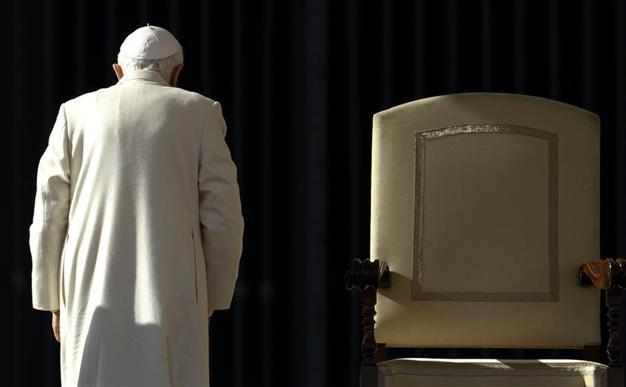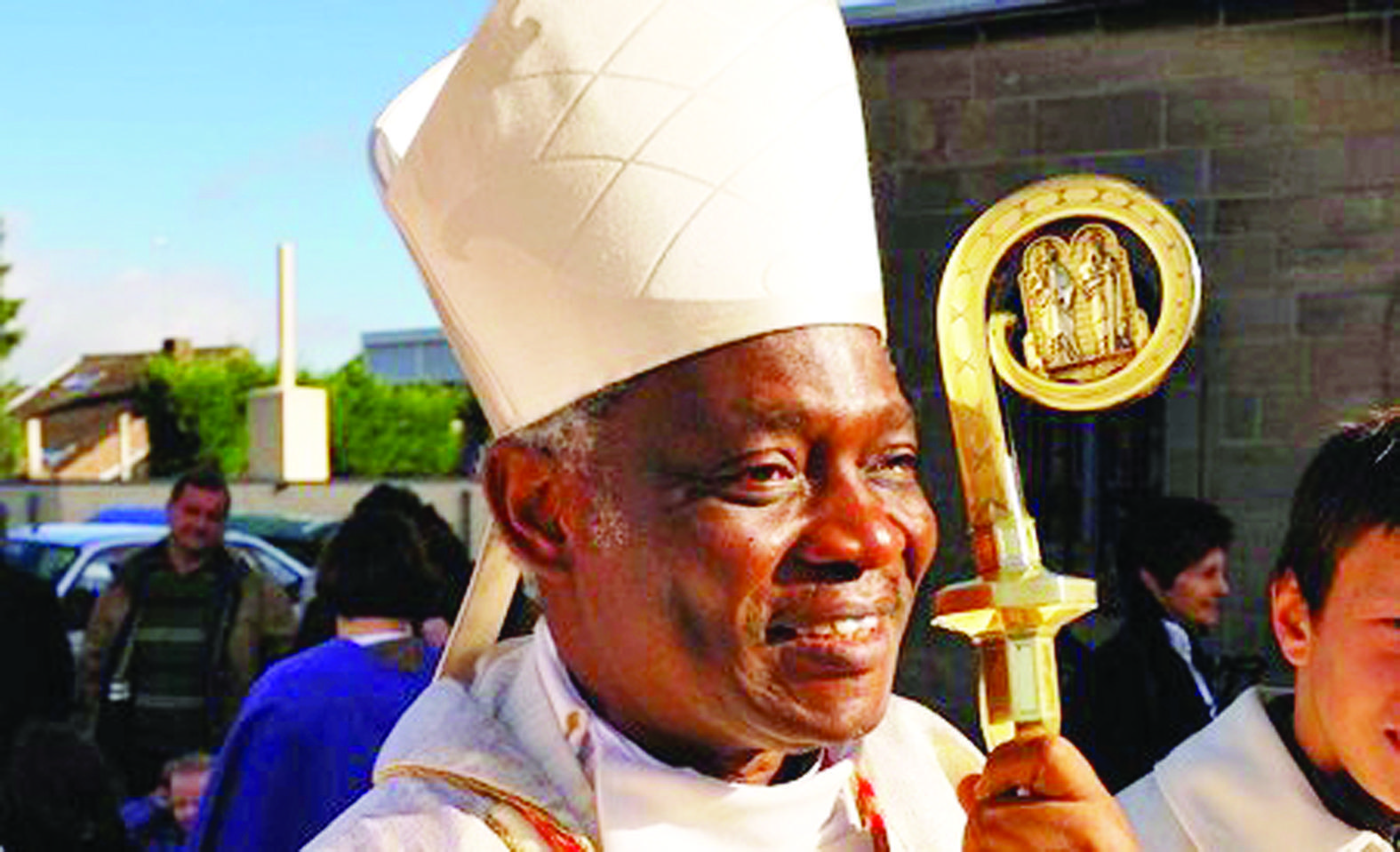
Pope Benedict XVI leaves at the end of his weekly audience in Saint Peter's Square at the Vatican November in this 16, 2011 file photo. Pope Benedict said on February 11, 2013 he will resign on Feb 28 because he no longer has the strength to fulfill the duties of his office, becoming the first pontiff since the Middle Ages to take such a step. REUTERS/Stefano Rellandini
Pope Benedict shocked the world today by declaring that he no longer had the mental and physical strength to cope with duty, in an announcement that will make him the first pontiff to step down since the Middle Ages.
Pope Benedict XVI is the first pontiff to step down in modern Catholic Church history. At most, there have been only five papal abdications in 2,000 years, but numerous popes were deposed or exiled, 21 popes are listed as martyrs and nine others are considered martyrs. Four popes died in exile or in prison, six were assassinated, two died of wounds received in the course of riots and one was killed when a roof collapsed. Here are the first and last examples of previous popes who have given up the papacy.
In 1045, Benedict IX, renowned as one of the most disgraceful popes the Church has known, sold his papacy to his godfather, pious priest John Gratian, so that he could get married.
In 1415, Gregory XII resigned in a bid to end the “Western Schism,” when two rival claimants declared themselves pope in Pisa and Avignon and threatened to tear apart Roman Catholicism.
After Pope Benedict’ XVI’s resignation statement, everybody is asking the question, how does a pope resign?
In
theory, there is nothing to stop a pope drafting a letter of
resignation to hand to the College of Cardinals. The College of
Cardinals is the supreme electoral body of the Catholic Church.
Under
Canon Law, the only conditions for the validity of such a resignation
are that it be made freely and be properly published.
Pope Benedict XVI, who has said he never wanted to be pope, will be remembered as a staunch defender of Roman Catholic orthodoxy, a diehard traditionalist and a lightning rod for controversy.
The German intellectual succeeded the long-reigning John Paul II in April 2005 aged 78 after serving nearly a quarter-century as the church’s doctrinal enforcer, earning himself the nickname “God’s Rottweiler.” Benedict, formerly Joseph Ratzinger, had famously said in 2010 that he would resign if he felt he could no longer carry out his papal duties. As head of the Congregation for the Doctrine of the Faith and then as pope, he rejected the ordination of women and marriage for priests. He opposed homosexuality and communism and was never afraid of upsetting political sensibilities.
As pope, he championed Christianity’s European roots and showed his conservatism by stressing family values and fiercely opposing abortion, euthanasia and gay marriage. A quiet, almost shy person, Benedict shunned rock-star status, once describing himself as “just the vicar” at the Roman Catholic Church’s World Youth Days. The intellectual Benedict, an accomplished pianist, is a prolific writer. Apart from three encyclicals, or instructions to the Roman Catholic flock, he has written around 40 other works including a best-seller, “Jesus of Nazareth.”